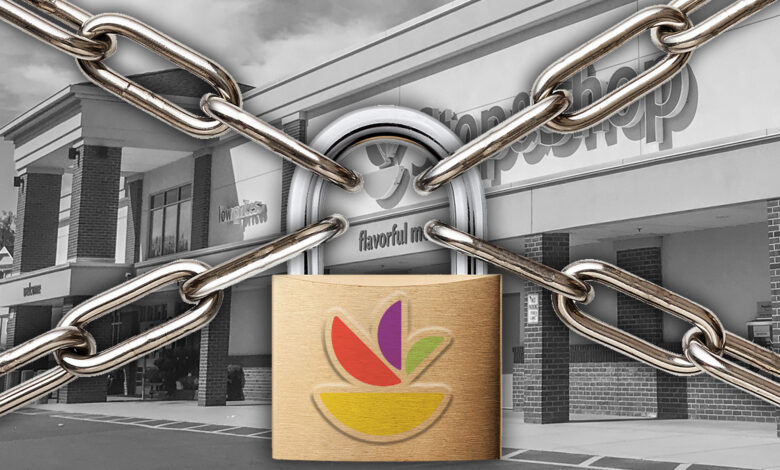Stop & Shop could close over 10% of its stores: experts

Stop & Shop could be forced to close more than 10% of its stores across the Northeastern US as shoppers increasingly balk at the 110-year-old grocery chain’s stiff prices, according to industry experts.
In a surprise announcement last month, the supermarket said it will make “difficult decisions to close select underperforming store locations.”
In addition, JJ Fleeman, CEO of the chain’s owner Ahold Delhaize USA, said Stop & Shop will make a “large, multi-year price investment” to lure back customers.
“The value proposition and pricing at Stop & Shop are simply not strong enough,” Fleeman admitted at a yearly investor meeting.
The result, according to some industry watchers: Stop & Shop could close as many as 50 stores — amounting to more than 12.5% of the chain, which spans 397 locations across Massachusetts, New York, New Jersey, Connecticut and Rhode Island.
“I believe Stop & Shop will close between 25 to 50 stores,” industry consultant Brittain Ladd, a former Amazon executive, told The Post.
Burt Flickinger of Strategic Resource Group — a grocery consultant who estimates shoppers pay between 12% and 14% more at Stop & Shop versus the competition — agreed, saying, ”they are looking at 20 to 35 stores now, but it could be as many as 50.”
Dutch-based food conglomerate Ahold Delhaize — whose US unit also owns Food Lion, Hannaford, Giant Food and The Giant Company — said last month it has renovated 190 stores, nearly half the fleet, and that those locations are now performing better.
Of the remaining locations, it’s mostly those that serve less-affluent neighborhoods that are likely being targeted for closure, according to Joshua Goldberg, a New York investment banker whose family founded Stop & Shop and operated it for 72 years.
“Stop & Shop always did better in neighborhoods where customers cared less about whether a quart of milk cost $3 or $3.28,” said Goldberg, whose family is no longer involved in the business. “But there are markets where people keep a closer watch on their pennies, and that’s where they’ll close their stores that haven’t yet been remodeled.”
“Stop & Shop is more expensive in almost every market they are in — and it’s also higher quality but now they have to be sharper on prices,” Goldberg added.
”The bulk of inflation is gone except in food where it’s about 5% and that’s really bugging people.”
Turmoil at Stop & Shop comes as Walmart has been aggressively courting a higher-income consumer. The discount giant gained market share during the pandemic when inflation shot up to 9% and it has been able to hold onto these new customers, say Wall Street analysts.
Walgreens, Target and Amazon also recently announced price cuts on thousands of items, including diapers, pet food, groceries and toiletries, to lure budget strapped customers back.
“Underperforming due to overpricing,” wrote one reader in response The Post’s report last week on the store closures. Another shopper wrote, “They need to lower their prices and maybe they would do better. 4 bags of groceries at stop & shop = $200 4 bags at Trader Joe’s = $150 and it’s better quality.”
Stop & Shop is also losing customers due to the quality of its meat, according to UFCW’s John T. Niccollai, president of local 464A, which represents employees at 60 stores in New York and New Jersey.
Several years ago the company downsized the meat departments in its stores after it began purchasing pre-packaged cuts from a purveyor.
These packages are treated with preservatives to retain their red color longer than the meat is viable, said Niccollai, who was featured in a 2019 Inside Edition investigative report about packaged meats.
“The meat department sales fell off by double digits,” Niccollai told The Post. “And the total store volume fell by single digits after the company” outsourced its butchering functions.
Stop & Shop didn’t respond to questions about the grocery chain’s meat department.
“We’re committed to continuing to invest in our stores – as well in our prices – to deliver a great in-store experience and great values for our customers,” Stop & Shop said in a statement. “Stop & Shop will make some difficult decisions to close select underperforming store locations to help ensure the long-term health and future growth for our business.”




